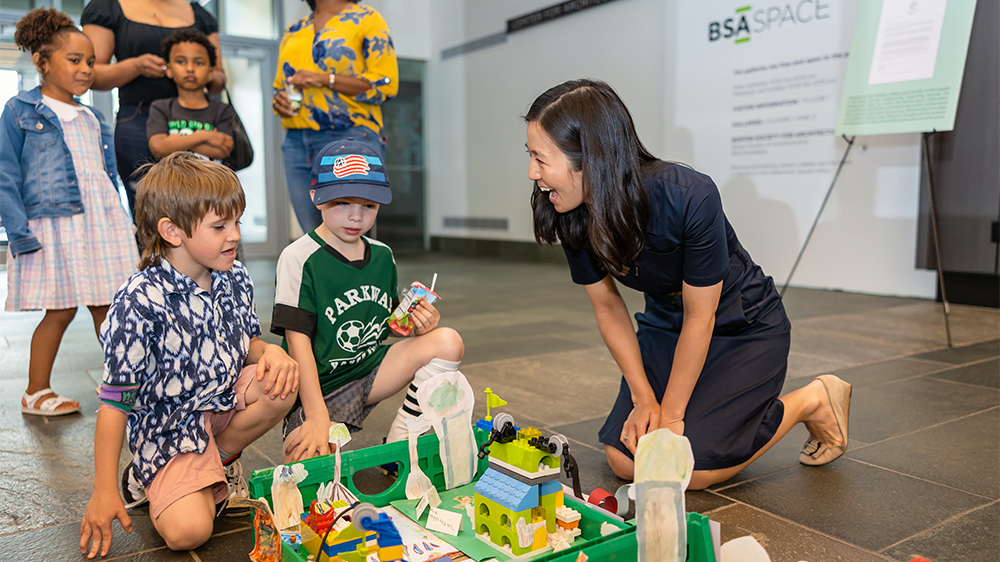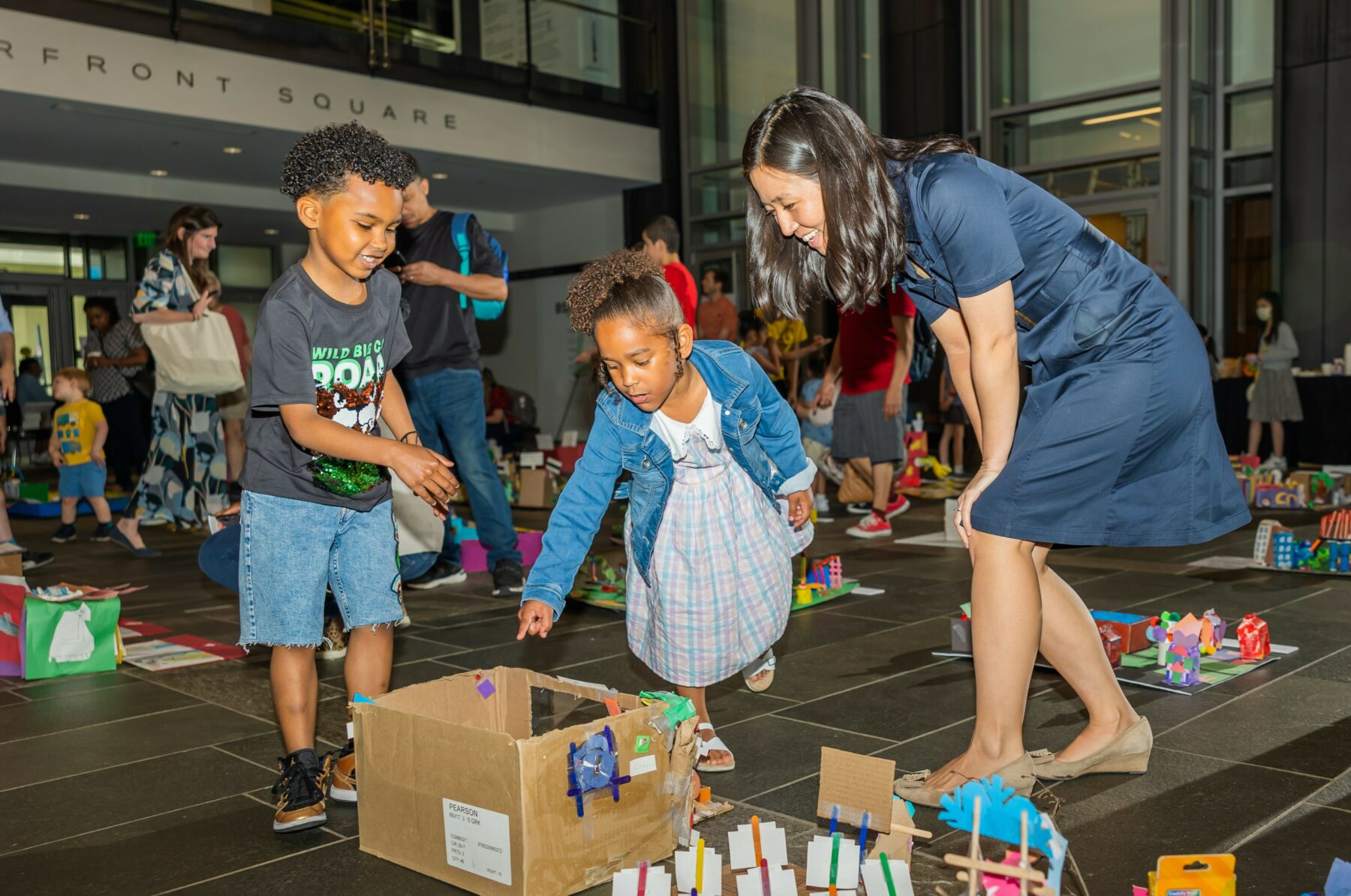Program
Kindergarten

Continuing its legacy of providing early childhood design education, the BSA Foundation aims to share architecture in age-appropriate ways and build greater awareness of architecture with students as early as kindergarten. To bring ideas about architecture and city-making into local classrooms, BSA partners with Boston Public Schools (BPS) and Cambridge Public Schools (CPS) to share curriculum and with its network of architects to bring the lessons to life.
Piloted during the 2017-2018 school year, the BSA's Kindergarten curriculum provides a two-part interactive lesson to participating classrooms, introducing students to architecture and planning through simple shapes and building types. The curriculum fits within a 10-week unit on construction and the larger year-long Focus on K-2 curriculum developed by BPS and utilized by CPS. Through a guided presentation and hands-on activity, students learn about the various places that make up their city before a hands-on design activity bridging individual student designs with a discussion on neighborhood planning.
BSA's Kindergarten program began with 15 classrooms (2018) and now reaches upwards of 250 classrooms through various means. Through virtual and hybrid visits (2020-2022), the architect-guided curriculum and volunteer architect visits grew to serve 120+ classrooms across the region. As in-person learning resumed and volunteer visits returned to pre-pandemic levels, the BSA scaled the program through the launch of a teacher-guided curriculum (2023) and materials provided to all district classrooms.
Volunteer architects will visit both districts in 2024, while the BSA revises its teacher guide for greater ease and adoption into classroom learning. The BSA will also continue its partnership with the districts on the Our Boston and Our Cambridge extension projects. For classrooms engaging in both the architecture lesson and extension project, students receive a consistent throughline of architecture across their winter/spring terms.
Through in-classroom learning opportunities, the BSA continues to build early awareness and understanding of architecture/design, urban planning, and the built environment with some of Boston's youngest residents.
Upcoming
Dates
March-April 2024
Location
Boston and Cambridge classrooms
Program
Type
Custom curriculum
Classroom workshops
Grade Level
Kindergarten
Timeframe
2017-present
Timeline
February: Volunteer interest and intake
February-March: Curriculum and material distribution, Volunteer preparation
March-April: Volunteer visits for CPS architecture lesson and BPS extension extension project
Collaborators
Partners
Boston Public Schools K-2 Department
Cambridge Public Schools Kindergarten Department
Volunteers
BPS: Local architects and designers
CPS: Cambridge architecture firms
Volunteers
Thank you to our volunteers for your time and energy in preparing for and visiting local classrooms. Sharing your knowledge and interest in architecture/design with local students is essential to building early awareness of the city and the built environment.
Volunteer submissions for 2024 have now closed. For other volunteer opportunities, check out the BSA Volunteer page.
Support
Thank you to those who have generously supported the development of this program. The program's growth and development were supported by the Cummings Foundation (2020-2022), while the launch of the teacher-guided curriculum and materials to all Boston Public School classrooms was supported by HAUS (2023). This and other BSA K-12 Design Education programming are supported by the Gordon Educational Fund.
To support this and other public programs, consider donating to the BSA Foundation.
K-12 Design Education
Questions about this program or other K-12 Design Education services? Feel free to reach out to Design Education and Engagement Manager, Taylor Johnson, [email protected].



